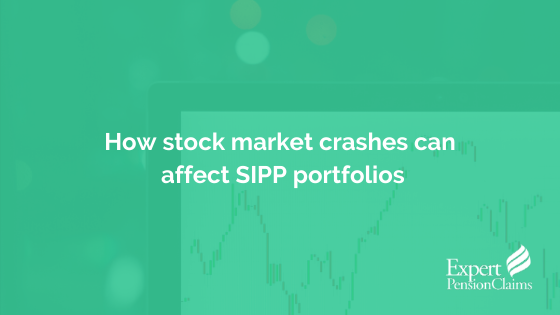No matter how rigorously you prepare your SIPP portfolio, even the strongest of them is not completely immune to the ups and downs of the stock market. The most upfront information a financial adviser can give is that when the stock market crashes, your SIPP portfolio will likely take a hit. The key to surviving it is damage control.
Read our guide for a full analysis of how your SIPP portfolio is influenced by the fluctuations of the stock market.
The risks of SIPPs
When you transfer your occupational pension into a SIPP (self-invested personal pension) you open yourself up to a number of risks that you should be aware of. Such risks include mis-sold investments, liaising with foreign property legislations, and being hit with additional tax charges.
However, one of the biggest risks is the greater vulnerability to the fluctuations of stock market activity. In recent years, stock markets have been more or less balanced with very few significant dips or meteoric rises. However, with the coronavirus crisis, many savers may have felt the pinch.
How the stock market affects SIPP portfolios
The majority of pension investments are put into assets which, if an investor is savvy enough, will be spread evenly across different sector groups and businesses of a diverse nature (this is called diversification).
Given that most of these assets will be traded on the stock market, your pension balance can be influenced by how healthy the stock market currently is. If the market is enjoying healthy growth, then this will be reflected in your portfolio. If the market is struggling, so too could your portfolio.
Like we said, diversification is considered to be the best damage control strategy. The potential impact on your portfolio and the current balance of your pension should be relatively low depending on how you have spread your investments.
Protecting your SIPP portfolio from stock market damage
Take another look at your portfolio
Review the strength and spread of your portfolio with your financial adviser, either before or during a stock market drop to ensure you can weather the storm. We recommend that you do this before if possible – this way you can anticipate a drop before it happens (you can’t predict the future but, for example, many investors bolstered their portfolios ahead of the coronavirus crisis).
Re-evaluate your income requirements
Take a closer look at your finances, your financial condition, and what you need to live on. It’s a short term strategy, but consider reducing your drawdowns for a little while to give you a buffer that may protect you from further losses. You may not want to continue drawing from a pot that is already depleting.
Create a financial cushion
Like anything, you should have a sufficient buffer amount that will protect you in the event that your investments take a turn for the worst. Build a contingency plan that will cover expenses for around 6 months or so, to allow you to continue planning for your future with confidence.
Change up your investment strategy
For the foreseeable, speak to your financial adviser and make sure that any new investments are solid. In a period of worrying stock market performance, ‘wild card’ investments are generally not recommended. Bigger companies will arm themselves with more and more protection for hard times, so investments in those companies will be similarly protected. Aggressive, daring investments have their time and place, but not when you’re trying to protect yourself and your portfolio.
Stay invested for the long-term
One of the most established and ‘old-school’ investment strategies for weathering stock market drops is to stay invested for as long as possible. The adage goes: “time in the market is more important than timing the market’, and since most stock market drops can’t be predicted, it makes a lot of sense. Investors should remain focused on their long-term goals and, as best you can, keep knee-jerk decisions out of it. There’s the eventuality that stock market health will return and you won’t have to pay the transaction fees when you dig your heels in and do not withdraw any funds.
Have you invested in a weak stock market after receiving bad SIPPs pension advice?
Many savers are feeling the pinch after weakened stock performance caused by the coronavirus crisis. If you have ever received bad pension advice and invested and lost money as a result, you may have been mis-sold a SIPP.
We can help you claim. Simply fill out our short enquiry form or, alternatively, call our team on 0161 968 0768. We’ve helped countless others in similar situations, so be sure to look through our testimonials.
In order for us to help you, you need to be eligible for a claim. Check if you have been mis-sold to by looking through the below resources, and check the rest of our blog for further information.














